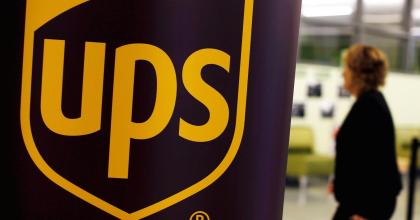Why UPS needs to win over China's "super consumer"
“Made in China” has become a part of American culture. Everything from iPhones and iPads to the 2012 U.S. Olympic team uniforms sport the label. Essentially, China is synonymous with “exporter” in many American minds.
But that may soon be changing. We all know China has a growing middle class, but what companies are starting to realize is that a growing middle class means a billion potential super consumers. For U.S. companies that may spell potential.
“China is the golden child of emerging markets, very fast growing middle class… and we’re certainly looking at the domestic market there as an opportunity,” said Alan Gershenhorn, chief commercial officer of UPS (UPS).
UPS is in the perfect position to gauge China’s potential as a consumer market place. No only has UPS long picked up Chinese exports to ship in the U.S., the company is now increasingly shipping U.S. made products to consumers in China.

Chinese imports were up 7.3% in 2013 to nearly $2 trillion dollars. Exports are still growing at a faster pace and China’s retail market is $4 trillion dollars.
This has gotten easier of late thanks to a number of factors. Alibaba (BABA), which recently posted the biggest IPO in history, has a site called “TMall” where companies can pay to list products online like an Amazon and sell to Chinese customers. U.S. companies like Nike (NKE) and the NFL sell their goods in China this way. (Disclaimer – Yahoo Finance’s parent company Yahoo Inc. has a roughly 16% stake in Alibaba.)
But Alibaba isnt’ the only company making it easier for U.S. companies to sell in China. UPS also offers services to make the process easier – including doing currency conversions and customers paperwork – so the Chinese customer doesn’t have to do any more work to buy American than locally.
“Chinese consumers are like lots of consumers. They see products they like and they want to order them online and...they’re not concerned about where [products] come from, as long as they get it just like it’s in their own country,” said Gershenhorn.
Savio Chan, author of new book “China’s Super Consumers,” looks closely at what that consumer desires. He points out that the Chinese already account for 25% of luxury-good sales globally and that 60% of those transactions take place outside of China. So the Chinese consumer is willing to spend his or her money abroad. Further, because Chinese consumers have experience buying foreign products, they’re not wary of buying them.
“Every year now, there are 15 million [Chinese] moving into city to urbanize in China. All these people, they will need cars, iPhones, iPads, TVs – anything we buy as middle class,” Chan said.
For U.S. companies selling those products it would serve them well to pay attention.
More from Yahoo Finance:
Volatility: The difference between implied and realized
Why it won't be a happy holiday for retail workers
5 reasons the Fed may not raise rates in 2015: Ron Insana

